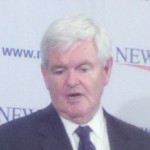
by | Jun 2, 2011
 An update on our friends in the Republican Party of Iowa State Central Committee.  You may recall that we had addressed the issue of some members of the committee actively working on campaigns.  Wednesday evening the Central Committee met and considered the issue (after deferring it due to lack of time at their last regular meeting).
An update on our friends in the Republican Party of Iowa State Central Committee.  You may recall that we had addressed the issue of some members of the committee actively working on campaigns.  Wednesday evening the Central Committee met and considered the issue (after deferring it due to lack of time at their last regular meeting).
There was an extensive discussion on the topic, initiated by John Ortega, that generally included comments to effect that committee members had heard from numerous constituents in their districts expressing concern about committee member involvement on campaigns. Â Mr. Ortega read a rather severe message that he had received that pressed for removal or at least reprimand against the members who were being paid to work on campaigns.
A motion was made by Jeremiah Johnson and amended by David Chung, which read as follows:
Those State Central Committee members with paid staff or consultant positions on campaigns in contested primaries or caucuses are required to disclose those relationships to the State Central Committee.
The motion was passed 10-4 with one abstention.
Although it does not go as far as I and other would like, it does establish a sense of accountability within the board membership, and clarifies that contested primaries and caucuses are specific areas of concern. Â I think that is an essential message for people to hear even if the overall affect of the measure more or less a non-event.
So, quick breakdown.
One of the “no” votes was cast by a committee member who has been concerned about this issue. Â That member voted against the measure simply because the measure did not go far enough.
The abstention was from Wes Enos. Â Wes mentioned during discussion of the topic that he saw this as a serious concern and that he plans, while serving on Michelle Bachmann’s campaign, to abstain from any votes that impact the Caucus. Â I applaud Wes for taking a strong step in acknowledging the fact of the appearance of a conflict of interest, and acting in a way that helps mitigate the issue. Â That demonstrates responsibility and character.
The other three “no” votes came from the other three committee members who are working on a campaign. Â I find it odd that they would take a combative position on such a non-intrusive measure. Â Voting for the measure would have cost them nothing and would have given them a positive appearance. Â Instead, the message it sends is that they do not see themselves as accountable to the Committee, and the impression it leaves with me is sour… it increases the appearance that their participation on the committee is geared more to their own personal agenda than it is for the sake of the party as a whole. Â If that’s true, it is very disappointing.
It is worth acknowledging that several members of the committee would have probably liked to see something more drastic occur.  An amendment to the  motion offered by Bill Schickel, to require that committee members abstain from operation votes, failed.  All of the members were very considerate of each other, emphasizing the issue as one of appearance and not an actual question of integrity, and in seeking a sensible solution worked to a compromise that probably accomplished as much as could be reasonably done at this juncture.
Specific constraints against the voting rights of the members would have likely been untenable. Â Such a measure, or anything more substantive, would probably need to be considered at the State Convention next year as a bylaw change. Â Based on follow up conversations with committee members, it is very likely that such a measure may be presented to the convention in some manner.
![The New Obama Concoction: Fairness and Protection]()
by Brian Nygaard | May 19, 2011
 How is it possible to resist the charms of any elected official offering the dual benefits of fairness and protection? After all, is not being treated equitably, while simultaneously being spared the pain of those who would seek to harm us, not of ultimate worth? Fairness must certainly be the quintessential American value, right? And our entire system of justice; is it not specifically designed to bring both fairness and protection?
How is it possible to resist the charms of any elected official offering the dual benefits of fairness and protection? After all, is not being treated equitably, while simultaneously being spared the pain of those who would seek to harm us, not of ultimate worth? Fairness must certainly be the quintessential American value, right? And our entire system of justice; is it not specifically designed to bring both fairness and protection?
Over the next year and a half we will hear the word fairness as if the word encapsulates the complete and final animation of the American ideal. We will also be offered a basket overflowing with governmental “protections†from rapacious bogeymen, both known and unknown. This little “benefits package†will come neatly wrapped in the form of a vague threat that would have us believe any alternative to this package would immediately result in enslavement. It is only demons that would offer us, the American people, anything less.
The real wonder in all of this is how Thomas Jefferson seemed to have completely missed the significance of the beatific vision of the liberal left. To have settled for such suboptimal and simple notions as life, liberty, and the pursuit of happiness must clearly validate the marked progression in our political thinking. Alas, we are talking about a couple of centuries of human achievement. If we can build an iPad, we must certainly be able to build a perfectly integrated, transparent, and high-functioning system of governance. We call this “political science,†as if it was somehow scientific.
Hope and change was the first chapter. Fairness and protection are now emerging as the second chapter. The only remaining question we now have is in determining which of these sets of notions is the most utterly naïve. There is, however, no remaining question as to which is more dangerous. Chapter Two is an unmitigated societal, moral and economic horror show.
Like hope and change, fairness and protection are proffered without definition or object. One man’s version of fairness is another man’s version of purgatory. To suggest that protections are being afforded is to beg the obvious question, “Protection from what or from whom?†The suggestion, of course, is that the government will become both the ultimate dispenser of fairness, and the protector from anything that is “not-government.†This is a binary universe in which the government is the center of virtue, and everything and everyone else is either mundane or oppressive.
In a hypothetical world where half the citizenry are drunken bums and the other half are productive and hard-working citizens, what represents a fair tax rate? Apparently, there is a fair answer to this question, albeit that the obvious answer seems to elude most of us common people. Not to fear, in the liberal mind, they have the answer. And if regulation doubles the price of that which we seek to consume, we must presume that the level of “protection†is worth paying for. Just ask them. They not only have all the answers, they are willing to impose them on everyone else.
They spin a web of myths. It is only unfortunate that these myths are so seemingly beguiling.
When Mr. Jefferson offered his modest notions of a sustainable basis for societal success, he understood that the government can only create a set of conditions where people can optimize their unique futures. He had seen the fairness and protection “themes†played out in history and seen the implications of the associated governmental arrogance. Mr. Jefferson was willing to look at humanity in a more positive light than many of his contemporaries. Even he could not begin to fathom the negative implications of what is now being offered as the standard offering of the Liberal Left.
When the markets create a willing buyer, and a willing seller, at a given price, most of us would agree that the “trade†was fair. On the other side of the equation, when the government intervenes in anything, it is not fairness and protection that we receive. It is rather just someone’s version of coercion. The liberal definition of fairness is just another form of arbitrary and completely baseless enslavement. It cannot be heard in any other way.
Fairness is only found in established conditions. It is never found in a quest for derived outcomes. When liberals transmute the definition of fairness into an effect, as opposed to its native state as a cause, they turn the world inside out. Viewing fairness as an effect is, by definition, fundamentally unfair. And the result is always predictable, and never pretty.




by Art Smith | May 19, 2011
 This past weekend, RPI Co-chair Jim Kurtenbach told members of the Republican Party of Iowa Central Committee who are serving as leaders of Michelle Bachmann and Ron Paul’s campaigns that they need to decide who they were going to represent at the Iowa Straw Poll in August: the Republican Party of Iowa or the candidates they were openly working for.
This past weekend, RPI Co-chair Jim Kurtenbach told members of the Republican Party of Iowa Central Committee who are serving as leaders of Michelle Bachmann and Ron Paul’s campaigns that they need to decide who they were going to represent at the Iowa Straw Poll in August: the Republican Party of Iowa or the candidates they were openly working for.
That may cause a bit of a quandary for the four, but they are evidently resolute in maintaining their positions with feet firmly planted in both roles. But it makes sense that one would have to make this decision, since they really can’t act out one role at the event without seeming half hearted at the other.
While the Iowa Straw Poll is an important event for Iowa Republicans, for the candidates who are looking to come out in at least the top three spots in the poll, and for many across the country who see it as the first real test of the candidate field, it’s not the whole point in this issue, but is part of it. The integrity and importance of that event can be called into question if people get the idea that the people running it are stacking the deck in favor of their candidate.
As can the Iowa Caucus itself. Nothing can likely destroy the importance of our first-in-the-nation status as questions about the integrity of the process.
Last week, we discussed the situation of the four members of the Republican Party of Iowa Central Committee. Recapping, out of these four members, one is currently serving on Michelle Bachmann’s campaign, and the other three are working on the Ron Paul campaign. All of them are in some type of leadership position on their respective campaigns.
And none of them considers this a conflict of interest.
Evidently, some of them even consider it inappropriate for party leadership to sit on the sidelines during primary and caucus season.
At this past weekend’s meeting, the committee worked on plans for the Iowa Straw Poll. There had been talk that the committee might address the question of the involvement of committee members on presidential campaigns prior to the caucus. The meeting apparently ran long enough that the committee did not have time to properly address the question.
But before they wound up their meeting, one of the committee members (not one of the four) brought the issue up. The group was not keen on extending the meeting since there was a physical walk-through of the event facility scheduled shortly after this. Another member of the committee pressed the issue and the group agreed to hold another meeting on June 1st (a 10 day notification lead time is required) to discuss the matter by phone.
In talking with members of the committee, it is extremely important that Republicans contact the members of the committee that represent their district. I’ve provided the names, districts and contact information for each of the committee members below so that you can provide input to your committee person.
|
To Identify Your District
|
Here’s Who To Contact
|
|
>>>>
>>>>
Statewide Party Leaders >>>>
>>>>
>>>>
|
(Email) Matt Strawn (Chairman)
(Email) Jim Kurtenbach (Co-chairman)
(Email) Kim Lehman (National Committeewoman)
(Email) Steve Scheffler (National Committeeman) |
|
First District
If your Congressman is: Bruce Brayley
If you live in one of the following counties:
Butler, Bremer, Fayette, Clayton, Black Hawk, Buchanan, Delaware, Dubuque, Jones, Jackson, Clinton, Scott |
(Email) Jeremiah Johnson (Dubuque)
(Email) John Ortega (Bettendorf )
(Email) Chelle Adkins (Cedar Falls) |
|
|
Second District
If your Congressman is: Dave Loebsack
If you live in one of the following counties:
Linn, Johnson, Cedar, Muscatine, Washington, Louisa, Des Moines, Lee, Henry, Jefferson, Van Buren, Davis, Wapello, Appanoose, Wayne
|
(Email) David Chung (Ceder Rapids)
(Email) Emily Lofgren (Muscatine)
(Email) Trudy Caviness (Ottumwa) |
|
Third District
If your Congressman is: Leonard Boswell
If you live in one of the following counties:
Grundy, Tama, Benton, Iowa, Poweshiek, Jasper, Polk, Marion, Mahaska, Keokuk, Lucas, Monroe |
(Email) Gopal Krishna (West Des Moines)
(Email) David Fischer (Altoona) (On Paul’s Campaign)
(Email) Wes Enos (Des Moines) (On Bachmann’s Campaign) |
|
Fourth District
If your Congressman is: Tom Latham
If you live in one of the following counties:
Emmet, Palo Alto, Kossuth, Winnebago, Hancock, Worth, Cerro Gordo, Mitchell, Floyd, Howard, Chickasaw, Winneshiek, Allamakee, Pocahontas, Humboldt, Wright, Franklin, Calhoun, Webster, Hamilton, Hardin, Greene, Boone, Story, Marshall, Dallas, Madison, Warren |
(Email) A.J. Spiker (Ames) (On Paul’s Campaign)
(Email) Drew Ivers (Webster City) (On Paul’s Campaign)
(Email) Bill Schickel (Mason City) |
|
Fifth District
If your Congressman is: Steve King
If you live in one of the following counties:
Lyon, Osceola, Dickenson, Sioux, O’Brien, Clay, Plymouth, Cherokee, Buena Vista, Woodbury, Ida, Sac, Monona, Crawford, Carroll, Harrison, Shelby, Audubon, Guthrie, Pottawattamie, Cass, Adair, Mills, Montgomery, Adams, Union, Clarke, Fremont, Page, Taylor, Ringgold, Decatur |
(Email) Tim Moran (Council Bluffs)
(Email) Craig Williams (Manning)
(Email) Monte Shaw (Panora) |
|

by | May 17, 2011
 Monday night I got to see essentially the same man I saw a year ago at the 2010 Polk County Republican Spring Banquet. This is a guy who has spent the past 12 years of his life dedicated to working with smart people to come up with solutions to America’s problems, and who comes across as thoughtful, smart (make that brilliant), and ready to work.
Monday night I got to see essentially the same man I saw a year ago at the 2010 Polk County Republican Spring Banquet. This is a guy who has spent the past 12 years of his life dedicated to working with smart people to come up with solutions to America’s problems, and who comes across as thoughtful, smart (make that brilliant), and ready to work.
I say “the same”, because even a year ago, Newt Gingrich already seemed like a man bent on the idea that we can fix the American healthcare system without creating a yet another new bureaucracy incapable of bending to the people’s will. A year ago he was pressing substantive health care reform ideas that acknowledged the deepest problems the Federal government has with running programs like Medicare… the government is just incapable of managing the fraud and abuse that have become one of the largest tax-payer boon doggles of all time.
I say “the same”, because a year ago Newt came to Des Moines with not only an air of confidence in himself that comes from decades of experience in the public eye, but a sense of purpose in his own life beyond giving a speech to a room full of Republican activists. He seemed a man already on a mission, perhaps already trying to find ways to do the job of president without the title. Some would call him a “statesman”.
But let’s say he was also a different man.
On Monday, the former House Speaker seemed to have eschewed the grim demeanor he carried in 2010. It was almost as if making the decision to run for President had taken a weight off of his shoulders instead of putting it on. He answered questions from the press and from a very receptive audience of about 200 with ease. He handled the big question of the day, regarding his comments on Sunday on Meet the Press, (where he confounded conservative Republicans by apparently criticizing Paul Ryan’s Medicare plan as “too big a jump” to the right), with a good explanation of his comments. For those of you who are interested, he essentially stated he had not communicated his thoughts well and was concerned about making dramatic changes to a program that impacts every single person in America. His emphasis seemed to be on caution and taking more of a phased approach to any changes in Medicare. Frankly, the transcript from Sunday’s program seems to say about the same thing, so I’m struggling with why people are upset about his comments.
Perhaps if people took the time to read the transcript instead of the headlines. Just sayin’.
With the last in mind, I will say, “the same”, because he does and may for some time, struggle slightly with how he communicates a message that may have significant research, analysis, and a team of high-valued brain-power behind it, in a way that can be understood by folks who have not had time to walk through the thought-process with him. He seems sometimes to suffer from a mild form of “Keyesitis” (for those of you who recall the enigmatic and hyper intelligent former US Ambassador and former Presidential Candidate Alan Keyes), or a predilection to speaking exactly what’s on his mind, even if the listener is unable to grasp the meaning easily. More simply put, he can sometimes be too smart for his own good. I don’t think he lacks the ability to explain himself, but in an age of entertainment, technology, and the 15 second sound bite, it is substantially more difficult to get these ideas across when the attention span of your listener is so severely limited, and the assumption that everything one needs to hear can be boiled down to a dozen words.
I suspect that as his campaign proceeds, he will work with his staff to formulate a message that can be more easily understood. His biggest risk may be answering questions for which he has not prepared a clear and simple answer, unless he can get to where he can regularly think and explain himself candidly at the level of a high school student or college undergraduate.
It was good to see Newt again, and I’m looking forward to seeing other candidates as the lead up the Iowa Caucus continues!
More comments on Newt’s Des Moines event can be found at Kathie Obradovich’s blog.




by Art Smith | May 16, 2011
 The Republican Party of Iowa (RPI) can be forgiven for taking a gamble on a big name casino owner like Donald Trump for their spring fundraiser… if you didn’t know, the star of The Apprentice, and one-time potential candidate for President, is the advertised main event for The Lincoln Dinner on June 10. Now, with the Donald’s decision to put the breaks on any plans to run for President, the plans for June 10 are mired up a bit.
The Republican Party of Iowa (RPI) can be forgiven for taking a gamble on a big name casino owner like Donald Trump for their spring fundraiser… if you didn’t know, the star of The Apprentice, and one-time potential candidate for President, is the advertised main event for The Lincoln Dinner on June 10. Now, with the Donald’s decision to put the breaks on any plans to run for President, the plans for June 10 are mired up a bit.
According to Casey Mills, spokesman for RPI, Trump is “reassessing” his plans to appear in Iowa.
You’d think that Matt Strawn would be reassessing the situation as well, no? How much sense does it make to keep a candidate on the schedule who garnered a large amount of initial, albeit emotional, support and then just dropped out? Do Iowa Republicans want to spend their time listening to someone who has been all flash and no fire? Are they coming to this event to hear the musings of one who couldn’t make it past the starting gate? Or do they want to see someone they can vet and get behind in the Caucus?
I suspect that Donald has some good observations to make about our current business climate, and the dynamics that exist with countries like China and Brazil as the US tries to work its way out of the economic mess it’s in. But it is hard to believe that someone who would only be in the race “half heartedly”, would truly have words of wisdom or advice to Iowans with regard to their task of looking through the resumes of those who remain. At least not words of substance.
The good news is that our list of people to watch has dropped by two in a few days. Hopefully we’ll be down to half a dozen by the time we get to the Iowa Straw Poll.
The bad news is that RPI needs to regroup and figure out what to do for the Lincoln Dinner. Perhaps Ron Paul is available?
Page 12 of 13« First«...910111213»

 An update on our friends in the Republican Party of Iowa State Central Committee.  You may recall that we had addressed the issue of some members of the committee actively working on campaigns.  Wednesday evening the Central Committee met and considered the issue (after deferring it due to lack of time at their last regular meeting).
An update on our friends in the Republican Party of Iowa State Central Committee.  You may recall that we had addressed the issue of some members of the committee actively working on campaigns.  Wednesday evening the Central Committee met and considered the issue (after deferring it due to lack of time at their last regular meeting).





